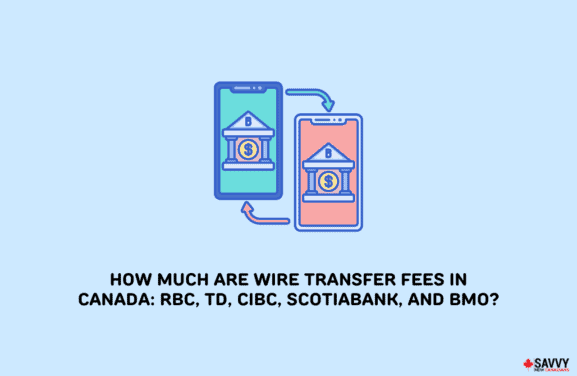Joint bank accounts can make it easier for you and your partner to manage your finances, save money, and pay shared bills.
These joint accounts are not only for couples. Even friends, parents and children, and business partners can open and benefit from joint accounts.
This article covers how joint bank accounts work, the best savings and chequing joint bank accounts in Canada, how to open one, and their pros and cons.
Best Joint Bank Accounts in Canada of 2024
Monthly fee
$0
Interest rate
Up to 4.00%
Promo rate
n/a
Features
Unltd. transactions
Best online savings account. Get free unlimited debits & Interac e-Transfer transactions, mobile cheque deposits, easy global money transfers, and access to GIC investments.
Monthly fee
$0
Interest rate
up to 0.10%
Promo rate
n/a
Features
Free cheques
Top-rated no-fee chequing with unlimited free transactions. $400 welcome cash bonus (can also earn 6.00% interest for a limited time with a savings account).
Monthly fee
$30.95
Interest rate
0%
Promo rate
n/a
Features
Unltd. transactions
Top premium chequing account with VIP perks. Get a $350 welcome bonus when you qualify. Earn a high-interest rate with the Scotiabank MomentumPLUS savings account.
Monthly fee
$0
Interest rate
3.00%
Promo rate
n/a
Features
Up to 5% cashback
Best debit rewards card. Earn 3.00% interest on your balance, 1% cashback on groceries and gas, and up to 5% cashback at partners.
Best Canadian Joint Bank Accounts
The 10 best joint accounts for chequing and savings accounts in Canada are:
1. EQ Bank Joint Account: Best For Savings
EQ Bank is one of the best digital banks in Canada. It is owned by a Tier 1 bank, Equitable Bank, and has more than $7 billion in deposits.
The EQ Bank Joint Account is in a class of its own as it combines both chequing and savings account features and has no monthly fees.
What you get includes:
- Unlimited free debits, withdrawals, bill payments, and Interac e-Transfer® transactions
- Shared access with up to 3 people
- High interest savings rate on your entire balance (up to a maximum of $500,000)
- CDIC deposit guarantee for each co-holder (up to $100,000 per owner)
- Mastercard debit card that waives FX and ATM fees. It also earns 0.50% cash back on all purchases
You can open this account by first opening an account for one of the co-holders and inviting the others.
For more details, read this EQ Bank Joint Account review.
2. Scotiabank Joint Account: Best For Premium Chequing
Scotiabank offers many joint chequing accounts you can choose from, and its Ultimate Package Account is easily one of the best joint accounts for couples.
Top features of the Ultimate Package include:
- Unlimited transactions (debits, Interac e-Transfer®, etc.)
- Annual fee waiver of up to $150 on select Scotiabank credit cards
- Points earned on all purchases
- Free access to thousands of ATMs in Canada and abroad
- Unlimited international money transfers
- Free safety deposit box, personalized cheques, and drafts
- Preferred rates on GICs and the MomentumPLUS Savings Account
This premium joint chequing account has a $30 monthly fee; however, the fee is waived if you maintain a $5,000 minimum balance.
For a cheaper joint account with unlimited transactions and VIP perks, you can also open a Scotiabank Preferred Package Account.
For a premium joint savings account, the Scotiabank MomentumPLUS Savings Account is worth checking out.
3. Simplii Financial Joint Account: Best No Fee Chequing Account
Simplii Financial offers one of the best free joint accounts in Canada. Owned by CIBC, this bank has almost 2 million clients.
The Simplii No Fee Chequing Account includes:
- Unlimited free debits and bill payments
- Unlimited free Interac e-Transfer® transactions
- Free personalized cheques
- Access to thousands of CIBC ATMs across Canada
- Interest earned on your balance
- No minimum balance requirement
- CDIC deposit guarantee
Joint account holders can sign and operate the account individually, plus make deposits and withdrawals.
To add a co-owner to an existing Simplii account, give them a call at 1-888-723-8881.
Simplii also has GICs, investments, mortgages, and loans.
For a limited time, new Simplii clients can get a $400 welcome bonus. You can also read our review for further details.
4. KOHO Joint Account: Top Prepaid CashBack Card
You can open a KOHO Joint account and combine finances with a spouse, friend, roommate, or sibling.
KOHO is a free spending account that pays interest on your balance when you set up a direct deposit. It also offers:
- Unlimited debits, bill payments, and Interac e-Transfer® transactions
- 1% cash back on grocery and gas purchases (up to 5% cash back at partners)
- 3% savings interest on your balance
- Automated savings for a financial goal (RoundUps)
- Instant notifications when any owner spends money
- Great-looking reloadable Mastercard
- Interest on your balance
Learn more about how KOHO works.
5. Tangerine Joint Accounts: Best Digital Account
Tangerine Bank is owned by Scotiabank, and its No-Fee Daily Chequing Account ranks well if you need an online joint account.
Its top features include:
- Unlimited bill payments, withdrawals, and Interac e-Transfer® transactions
- Tiered interest is paid on your balance
- Free access to thousands of Scotiabank ATMs
- CDIC deposit guarantee
Learn more about Tangerine joint accounts or read our review.
6. TD Joint Accounts
TD Canada Trust offers a variety of chequing accounts for joint owners.
You can add up to 9 people, and everyone has access to the funds, regardless of who makes a deposit.
Here’s a deep dive into TD chequing accounts.
To open a joint account, you will need to visit a TD branch in your area and ensure all account holders bring two pieces of ID, with at least one government-issued photo ID.
7. RBC Joint Bank Accounts
RBC makes it easy to open a joint bank account online.
If you have Online Banking, you can add a co-owner who already banks with RBC to an existing account.
Each co-owner added to the joint account will receive an invite through their Online Banking message centre.
RBC joint accounts can also be opened for U.S. high interest savings accounts or a U.S. Personal account.
Learn about RBC chequing account options.
8. BMO Joint Bank Accounts
Opening a joint account for a family, the BMO Family Bundle is worth checking out.
One family member opens a paid chequing account and can then invite other members to open accounts under their plan. These subsequent accounts have no monthly fees.
Unlike a traditional joint account, BMO’s Family Bundle plan keeps each account private.
You can add up to 20 people to a BMO Family Bundle; however, they must all live at the same address.
Here’s a review of BMO bank accounts, or you can learn more about the Family Bundle.
9. CIBC Joint Bank Accounts
You can add a co-owner to an existing CIBC account by visiting one of their branches.
For new joint accounts, you can add a co-applicant during the account opening process online.
Each applicant will be required to provide 2 pieces of identification.
CIBC has several chequing accounts you can choose from with different price points and perks.
10. Motive Financial Joint Accounts
Motive Financial is a division of the Canadian Western Bank. It offers chequing and savings accounts you can open along with someone else.
If both applicants are new to Motive, the joint account can be opened online.
If one of the co-applicants is already a Motive customer, you will need to contact them at 1-877-441-2249 for assistance.
Learn more about Motive Financial in this detailed review.
Joint Bank Accounts Explained: How They Work
A Joint account is a type of bank account with more than one owner.
Typically, when you think about joint accounts, a married couple may come to mind. However, they can also be useful outside of a spousal relationship.
Joint accounts can be set up for parents and their children, seniors and their caregivers, close friends, business partners, and other individuals.
Simply put, a joint account has two or more owners who can make withdrawals, deposits, bill payments, write cheques, and more.
All account holders have equal access to the account, which has its pros and cons.
Joint account co-owners may be able to decide whether joint consent is needed to conduct some transactions.
In the case of a parent opening a joint account with a teenager, they may be able to set limits on transactions the child can conduct.
The two main types of joint accounts in Canada are:
- Joint chequing accounts, and
- Joint savings accounts
Joint chequing accounts are designed for everyday transactions, bill payments, direct deposits, withdrawals, cheques, etc.
Joint savings accounts are best for putting money aside for specific goals, such as a vacation or emergency funds.
How To Open a Joint Account in Canada
Online banks like EQ Bank and Tangerine make it easy to open joint accounts online.
For traditional banks, you and your co-applicant will need to visit a bank branch to open the account.
As with a personal chequing account, you will both need to provide your social insurance numbers (SIN), current addresses, and acceptable IDs such as a driver’s license or passport.
If you are a newcomer to Canada, you may also need to show proof of residency, such as a Permanent Resident Card, work permit, or student visa.
If opening a joint chequing account, all co-owners are issued debit cards.
How To Close a Joint Bank Account
Closing a joint account is similar to closing your personal bank account.
Follow these steps:
- Withdraw funds from the account, so you have a zero balance. You can also transfer the balance to another bank account.
- If you have set up pre-authorized bill payments, you will need to update them with your new bank account details to avoid non-sufficient fund (NSF) fees. Also, ensure there are no outstanding cheques that have not been drawn.
- Close the account. Some banks allow you to close your account by phone or Online Banking. For other banks, you may need to visit a branch.
Pros of Joint Bank Accounts
Joint bank accounts offer many advantages:
- Couples can manage their finances in one place and easily pay for household expenses. They can both track how money is being spent or saved, and there’s less confusion about how the family is doing financially.
- A joint chequing account is cheaper overall than having multiple chequing accounts.
- Parents can monitor how a child manages money and help them develop good financial habits.
- It can be easier to maintain a higher minimum balance and waive monthly maintenance fees when you are sharing a bank account with one or more other individuals.
- Right of survivorship: If a co-owner dies, the surviving account holder becomes the owner of the account. This can help with estate planning and minimize or avoid probate fees.
Cons of Joint Bank Accounts
There are some downsides to having a joint account:
- It requires trust. Co-owners of the account see all your transactions, and there is no privacy. Anyone can empty the bank account whether or not they have contributed funds to it.
- Things can get messy if a relationship breaks down, e.g. in a divorce.
- When debt is involved, such as overdraft, or even personal loans or bankruptcy, your credit score could be damaged, and creditors may lay claim to assets of a joint account. In essence, there is shared liability.
Should You Have a Joint Bank Account?
A joint account can make life easier when two or more people need to manage money together, either as a couple, family, or business.
It can also complicate issues if you have a joint account with someone who has bad spending habits or is not trustworthy.
Before deciding on opening a joint account, you should have a conversation with co-owners about how the money will be used and set boundaries where necessary.
Couples should also consider keeping their personal bank accounts open.
They can each withdraw a specific amount each month from the joint account to spend however they please.
Alternatively, they can receive payments in their personal chequing accounts and agree to contribute monthly to a joint account to pay shared bills and expenses.
Joint Bank Account FAQs
For online joint bank accounts, the best banks are Simplii Financial and EQ Bank. For premium joint accounts, the best bank is Scotiabank.
All co-owners of a joint account have access to the funds in the account and can withdraw them.
The surviving account holder generally enjoys rights of survivorship, and they retain ownership of the money in the account.
Each owner of a joint account pays taxes based on how much interest income is earned from their contributions to the account.
All co-owners of a joint chequing account receive a debit card.
Related:







